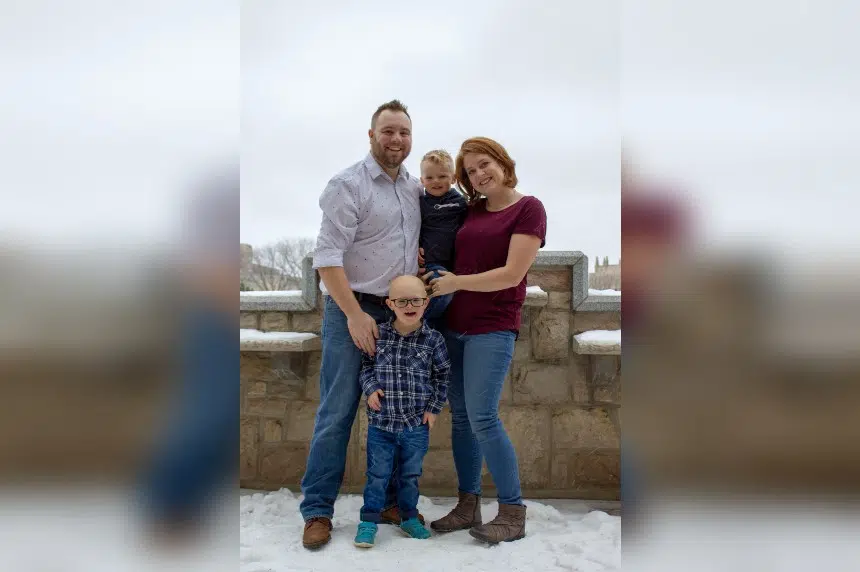Jack Cashin was born with Down syndrome and a heart condition.
His father, Francis, says his son needed major surgery, which required admission to Edmonton’s Stollery Children’s Hospital. And for the first two years of Jack’s life, medical appointments were required at least once or twice a week.
Now seven, Jack is still medically fragile, says his dad. Francis worries that if his son needs urgent medical care, it may not be available, as Saskatchewan grapples with a fourth wave of COVID-19.
Intensive care units, including the Pediatric Intensive Care Unit (PICU) at the Jim Pattison Children’s Hospital, are seeing more patients — including many with COVID — seeking medical care.
As of Tuesday, 78 of 101 available ICU beds in the province were full and two adults with COVID had been admitted to the children’s hospital.
“These beds are needed by people who have accidents and who have things that are outside of their control,” Cashin said. “Really, that’s what we’re needing our health-care system for — for those kids with heart issues, for those kids with genetic disabilities, those kids who have cancer, those kids that have had car accidents or anything along those lines.
“We want to have access to those services if we need it. At the same time, I don’t want to need it. I don’t want my son in the hospital.”
The Saskatchewan Health Authority announced Wednesday that the PICU in Saskatoon would temporarily begin accepting ICU patients up to the age of 40, according to a statement.
“Adult patients requiring an ICU bed will be considered for admission to JPCH,” the SHA said. “Patients are selected jointly through a clinical review by the adult critical care physicians (intensivists) and the pediatric intensivist.
“Pediatric patients will continue to receive and be prioritized for critical care within the province’s PICU at the JPCH; no pediatric patients will be displaced.”
Multiple requests to the SHA to speak directly with a Saskatoon medical health officer were made. But by the time of publication, no one had been made available to comment on the demand at the PICU, whether there are any staff shortages and how additional patients would be accommodated if there was a critical incident involving many young patients.
Cashin says he’s scared right now but also hopes his son and other children with medical conditions who can’t be vaccinated will have a bed available to them if they need it.
“It’s frustrating that we’re at this point,” Francis said, “and I didn’t think that, living where we do, we would be rationing the type of care that we can provide. ”
His family chose to stay masked throughout the summer — even after restrictions were lifted by the provincial government — to try and lower their risk of contracting the virus. Cashin doesn’t want to think too much about what might happen if Jack were to come down with COVID-19.
“I think it’s more so a coping mechanism. I just don’t want it to be there yet,” Francis said.
Cashin is also asking those who have not yet been vaccinated to do so, and to look at things from a different perspective.
“It’s not about the individual choice now, unfortunately,” he said. “It is about a community choice, to really have the community support one another and supporting our children who can’t support themselves yet.”








